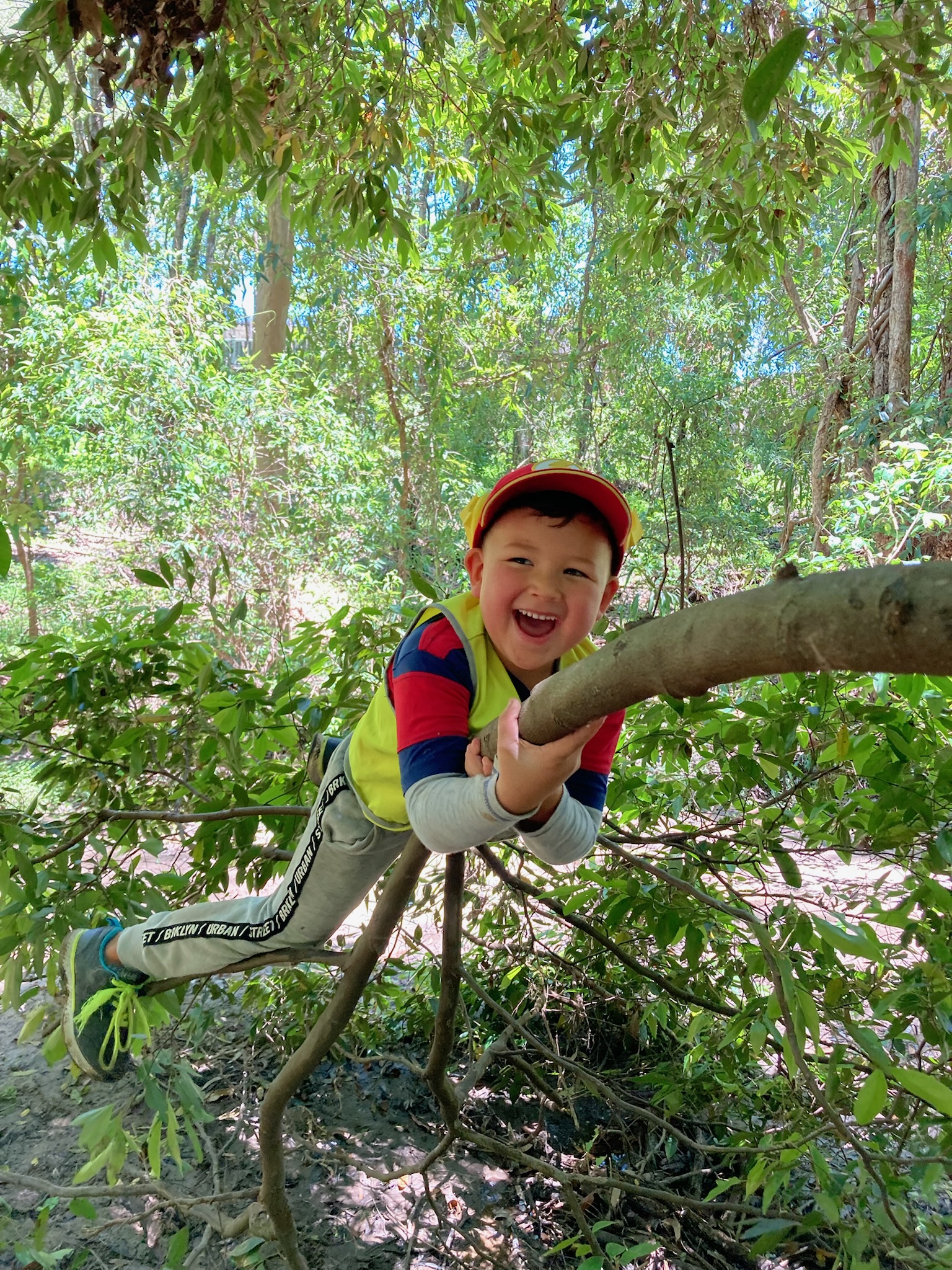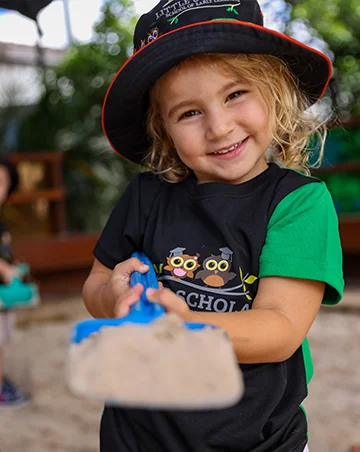If you follow our social media posts, you know we’re passionate about getting our Little Scholars outside. Have you ever wondered why outdoor play is such a vital part of our early educational program?
Embracing the sensory experience
Imagine the fresh air brushing against your face, the satisfying crunch of leaves under your feet, or the soothing sound of a nearby burbling stream. Picture the invigorating scent of freshly cut grass or the refreshing breeze of the salty sea air. Envision the tactile sensation of rough bark or smooth stones. And finally, visualise the breathtaking beauty of greenery, rivers, streams, and oceans.
In essence, being outdoors offers the ultimate sensory experience that simply cannot be replicated in a studio.
Reviving the spirit of unrestricted play
Many of us cherish childhood memories filled with boundless hours spent exploring the great outdoors. However, as life has grown busier for families, children today are spending less time engaging in unrestricted play outside. A recent study by Royal Children’s Hospital national child health poll found that 45% of Australian children play outdoors most days, and 80% of parents would like their children to spend more time outdoors. At Little Scholars, we want children to rediscover the joy of unstructured play in nature.
One study found that children who engage in just one third more outdoor activities than their peers grow up to be happier adults.
Outdoor learning should be an integral part of children’s everyday lives, providing fun and enjoyment while also serving as a stimulus and extension of their indoor learning. If your child attends Little Scholars, outdoor play is a key component of their daily experience on our campus.
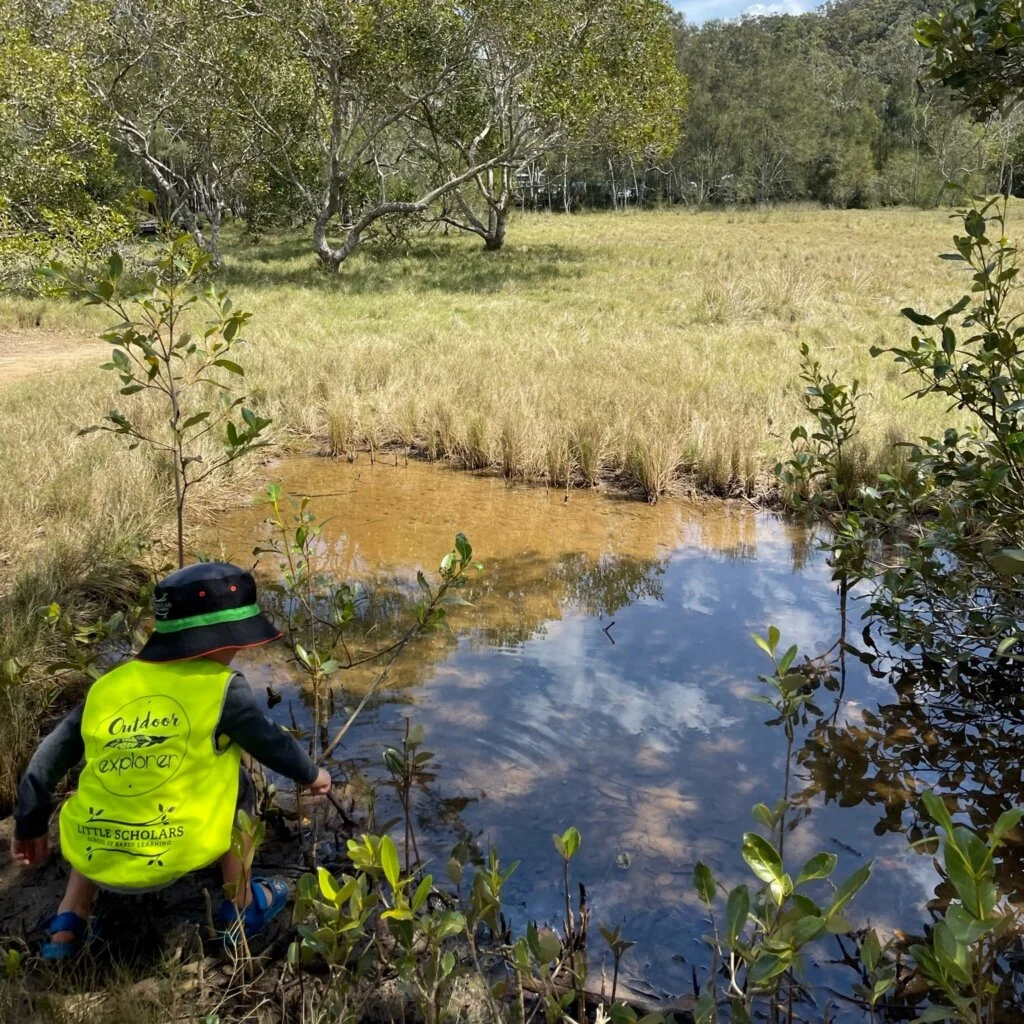
A focus on the natural environment
At Little Scholars, our educational programming places a strong emphasis on the natural environment. We have developed the Little Scholars’ Bush Kinder program, an innovative outdoor education experience for children of all ages, fostering exploration, discovery, and learning in nature.
During our Bush Kinder adventures, children engage in a range of activities, including nature walks, wildlife watching, building shelters, and learning about indigenous culture. They climb, scramble, jump, and fully immerse themselves in nature’s playground.
The role of specially-trained outdoor teachers
Our outdoor teachers are highly experienced and qualified in outdoor education and child development. They understand the significance of outdoor and nature play in fostering children’s development and well-being. By cultivating a love for nature and the environment, as well as a connection to all living things, they help fulfill children’s basic needs for freedom, adventure, experimentation, risk-taking, and simply being children.
Safety and support
At Little Scholars, the safety and security of our children are of utmost importance. Our Bush Kinder program is conducted in a safe and secure outdoor environment, with strict protocols in place to ensure the well-being of all participants. Our educators are passionate about providing children with meaningful learning experiences in a safe and supportive setting. Extensive risk assessments are conducted prior to excursions, but children are also advised and included in risk assessing while on their adventures so they can begin to think about safe risk taking while enjoying being outside. Our Bush Kinder program is designed to be fun, engaging, and educational, and there are plenty of benefits for children while they’re out on their adventures.
Children have the opportunity to explore and discover the wonders of the natural environment, learning about plants, animals, and ecosystems firsthand.
Through hands-on experiences, children develop critical thinking and problem-solving skills. They learn to navigate challenges and find creative solutions.
Outdoor play provides ample opportunities for children to interact with their peers, fostering the development of social skills and the formation of new friendships.
Engaging in outdoor activities helps children develop their physical skills, such as coordination, balance, and strength.
During bush kinder, we engage in Dadirri, an Aboriginal word meaning ‘inner deep listening and quiet still awareness and waiting’. So while out enjoying nature, the children and educators sit with a bit of space from each other and pay close attention to what they can hear, see, smell and feel. Bush kinder also provides an opportunity to learn, acknowledge, and celebrate the history and traditions of the people who were the traditional owners of the land they love to spend time exploring.
Finally, spending time in nature cultivates a sense of wonder and deepens children’s appreciation for the natural world around them.
Theorists and history of outdoor learning programs
While we take pride in our learning programs that prioritise outdoor play, it’s important to acknowledge the foundations upon which these programs were built. Our teams have conducted extensive research and drawn from the following theories:
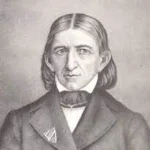
Friedrich Froebel (1782-1852): Froebel’s approach emphasises holistic development and creativity in early childhood education. He recognised the importance of outdoor learning, nature walks, and gardening.
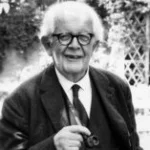
Jean Piaget (1896-1980): Piaget’s theory of cognitive development highlights the role of play in intelligence development. He believed that children’s play and environment should encourage cognitive and language growth.
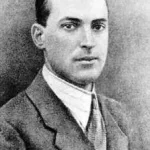
Lev Vygotsky (1896-1934): Vygotsky emphasised the importance of children’s interaction with the environment and their peers. He believed that learning is enhanced through social interaction and scaffolding from a more knowledgeable other person.
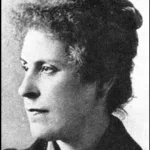
Margaret McMillan (1860-1931): McMillan, along with her sister Rachel, played a pivotal role in nursery education. They advocated for open-air nurseries and opened Britain’s first open-air nursery, and unlimited outdoor play, recognising the benefits of hands-on experience and active learning.
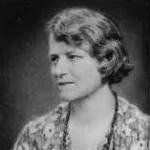
Susan Sutherland Isaacs (1885-1948): Isaacs, an educational psychologist, believed in the central role of play in a child’s education. She emphasised the importance of outdoor exploration and community engagement to support children’s emotional and cognitive needs.
Our Campus Outdoor Environment
While our Bush Kinder program is a significant aspect of Little Scholars, outdoor play doesn’t always require leaving the campus. Our yards are purposefully designed as extensions of our studios, providing space for learning, relaxation, and play. From play forts to bike tracks, gardens to sensory paths, and water play areas, our outdoor environments offer open and less structured spaces for children to explore, overcome challenges, and grow.
By encouraging children to spend time outdoors, whether through Bush Kinder or within our incredible yards, we aim to provide them with a well-rounded early education. Outdoor play nurtures essential skills such as resilience, teamwork, creativity, mindfulness, and risk assessment in a safe and supervised environment.
Now that you understand why outdoor play is such an integral part of the Little Scholars experience, it’s time to discover how nature play can bring out the best in your child. Find out more by booking a tour and seeing firsthand our commitment to supporting children’s growth and development.
